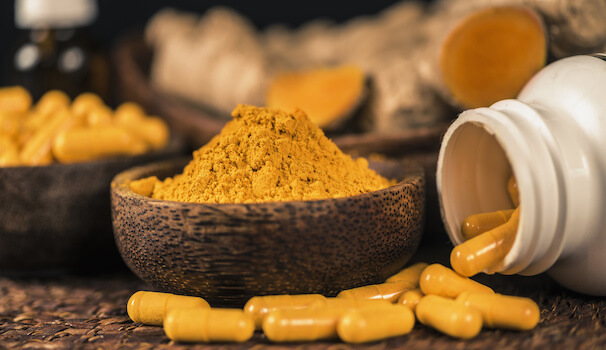February 25, 2021
Curry Spice for Memory

By Ram Rao, Ph.D., Principal Research Scientist for Apollo Health
Curcumin is the main biologically active phytochemical in the turmeric root and gives the spice its bright yellow color and strong taste. Turmeric root is a leafy plant in the ginger family and has tough brown skin and bright orange flesh. Turmeric is boiled or steamed and then dried and ground. Its use dates back nearly 4000 years, when it was used mainly as a culinary spice. Turmeric has long been used in the Ayurvedic practice of medicine to treat a wide variety of conditions, including pain, jaundice, menstrual difficulties, hemorrhage, toothache, flatulence, and bruises.
Curcumin has high levels of phenols that are potent antioxidants. The wide-ranging benefits of curcumin have not gone unnoticed in the scientific community. Scientists are researching curcumin at breathtaking speed. Recent scientific studies have demonstrated the roles of curcumin as an anti-inflammatory and antioxidant agent. Curcumin mitigates the effects of several dietary carcinogens. It reduces the progression of atherosclerosis by preventing the oxidation and build-up of cholesterol in the body.
According to researchers at the University of California, Los Angeles (UCLA), curcumin may also improve memory and mood. The study, published in the American Journal of Geriatric Psychiatry, examined 40 adults between the ages of 50 and 90 who had mild memory loss. For the study, randomly assigned subjects received either a placebo or 90 mg of a curcumin supplement twice daily for 18 months. The subjects were given standardized cognitive assessment tests at the start of the study and at six-month intervals. Researchers monitored participants’ curcumin levels at the beginning and the end of the study. The subjects also underwent positron emission tomography (PET scans) to determine amyloid and tau levels in their brains at the start of the study and after 18 months.
The findings revealed that the people who took curcumin supplements experienced significant improvements in their memory and attention abilities compared to those who received the placebo. Subjects taking curcumin saw memory test scores improve by 28% over 18 months. The depression scores of those taking curcumin also improved; the placebo group’s scores did not change. The PET scans of the curcumin group showed significantly fewer amyloid and tau signals in the amygdala and hypothalamus than the placebo group — both these regions of the brain control anxiety, memory, decision-making, and emotion.
Exactly how curcumin exerts its effects is not certain, but it may be due to its ability to reduce brain inflammation, which has been linked to Alzheimer’s disease and depression. While more work will be needed to determine the optimal dose of curcumin for various AD subtypes or individuals, curcumin appears to be promising to promote cognitive health.
For more information about Alzheimer’s disease and its subtypes, supplements, and lifestyle interventions to improve memory and cognition, please visit https://www.apollohealthco.com/.




